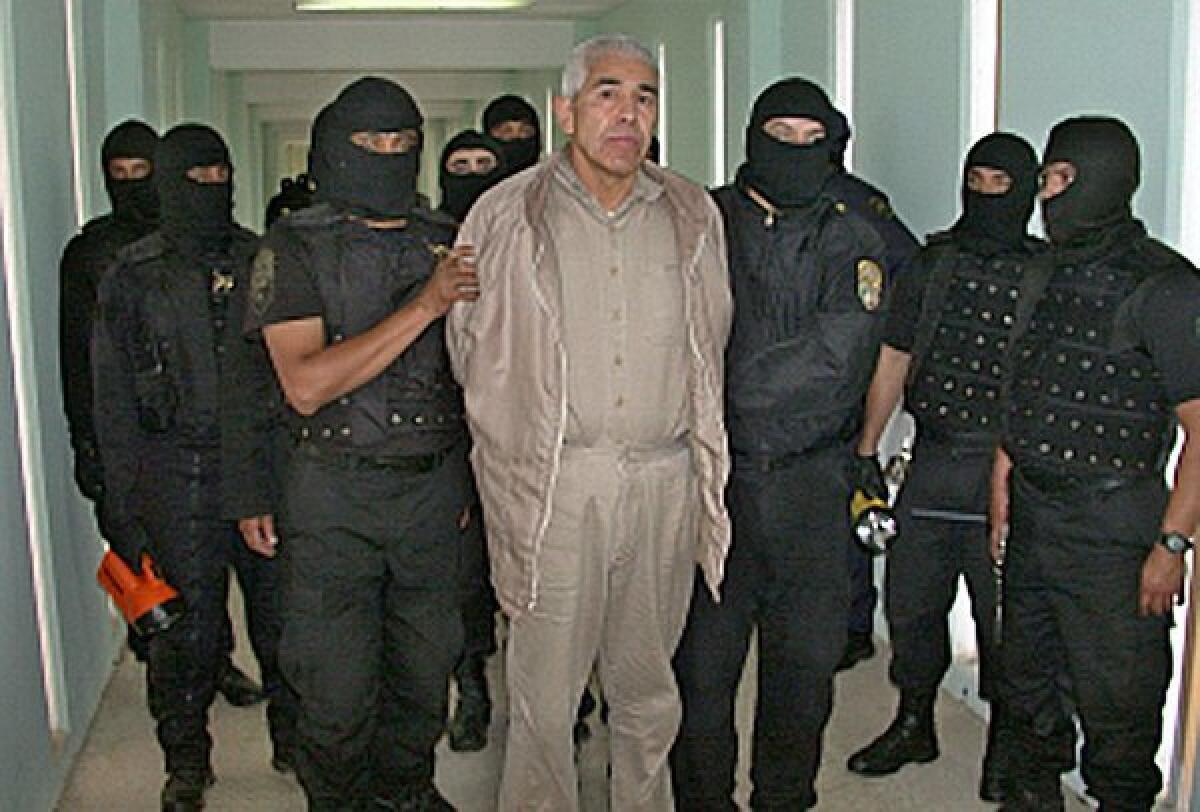DEA agent ‘Kiki’ Camarena’s Mexico slaying called a game changer

MEXICO CITY -- The former boss of slain DEA agent Enrique “Kiki” Camarena says the 1985 killing was a game changer, both in how the U.S. worked with Mexico on narcotics enforcement and how the traffickers themselves operated.
James Kuykendall, who served as resident agent in charge in the Drug Enforcement Administration’s office in Guadalajara in the 1980s, recalled Camarena’s slaying after learning that the drug lord convicted in the crime was freed from prison Friday on a technicality.
An appeals tribunal ruled that Rafael Caro Quintero was improperly convicted on federal charges, when the proper venue should have been state court. The tribunal ordered Caro Quintero, who has been in prison for 28 years of a 40-year sentence, released and the conviction voided. The prosecutor’s office in Jalisco, the state where Caro Quintero was serving time, confirmed he walked free about 2 a.m. Friday.
“The decision [by traffickers] to kill a U.S. federal agent changed everything,” Kuykendall, now retired, said in a telephone interview Friday from his home in Laredo, Texas.
For one, he said, it made the bosses in Washington realize the dangers that agents in the field faced and the apparent complicity of the Mexican government in protecting and facilitating drug traffickers. The killing seriously strained U.S.-Mexican relations. The U.S. all but shut its border with Mexico for a period, and Mexico eventually imposed restrictions on DEA activities inside the country.
One upside may have been that traffickers who had swaggered unabashedly about Guadalajara were forced to lie low, at least in the short term, Kuykendall said.
“Before Kiki was killed, the traffickers lived and worked with impunity and with [government-licensed] bodyguards,” he said. “They did whatever they damn well pleased.”
The agents in the Guadalajara office knew they were being watched and felt under threat, Kuykendall said. The car of one had been machine-gunned just weeks before Camarena was kidnapped. But he said their complaints and requests for more security fell on deaf ears in Washington, a charge that has been aired before.
“There were warnings,” he said. “We knew we were in danger.”
Camarena vanished on Feb. 7, 1985, after leaving the U.S. Consulate in Guadalajara to meet his wife at a restaurant. A month later, the search ended when investigators, purportedly acting on an anonymous tip, went to an area in western Michoacan state where they found the tortured bodies of Camarena and a Mexican pilot he frequently worked with on aerial hunts for marijuana fields.
Including Caro Quintero, about two dozen people were eventually convicted in Mexico in connection with the Camarena case, as well as seven in U.S. courts.
Now 61 and silver-haired, Caro Quintero is ranked among the legendary founders of Mexico’s most important drug-trafficking cartels. U.S. officials believe he has continued to run trafficking and money-laundering operations from inside prison.
In June, the U.S. Treasury Department added several of his alleged associates to its so-called kingpin list, imposing sanctions against 18 people and 15 companies.
His former attorney, meanwhile, said Friday that he believed the reputed drug lord was held in prison for such a long time for purely political reasons and because of U.S. pressure. Jose Luis Guizar suggested that some of Caro Quintero’s convicted accomplices should also go free.
“In this case, politics did not permit the imparting of justice,” the lawyer said in a radio interview.
It was not immediately clear whether the U.S. would pursue an extradition claim against Caro Quintero.
ALSO:
Italian Mafia boss ordered held by London court
Alleged Israeli drone strike kills 5 in Egypt’s Sinai
U.S. cites specific threat for decision to close consulate in Lahore
Cecilia Sanchez in The Times’ Mexico City bureau contributed to this report.
More to Read
Sign up for Essential California
The most important California stories and recommendations in your inbox every morning.
You may occasionally receive promotional content from the Los Angeles Times.











